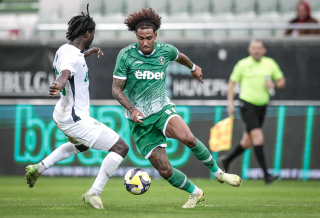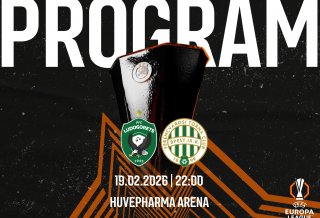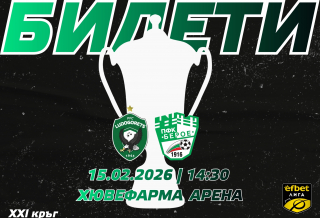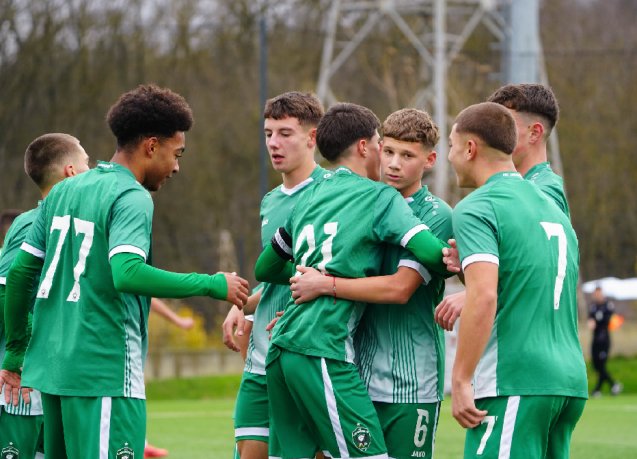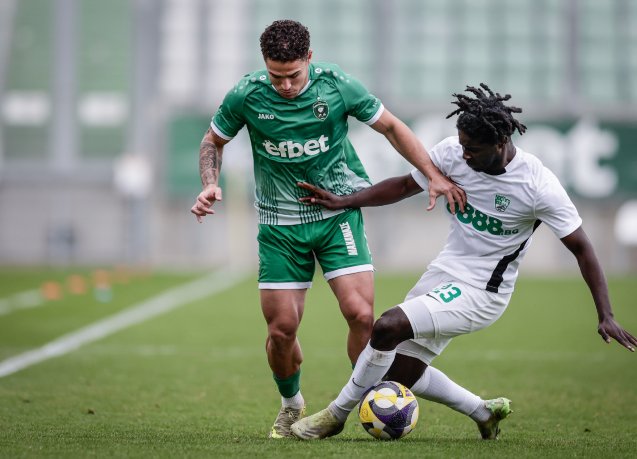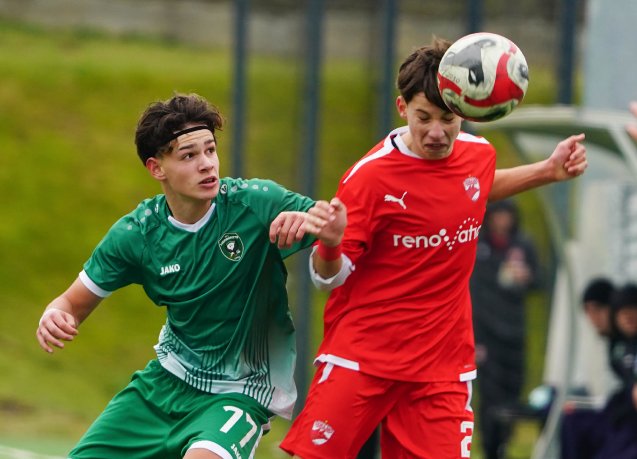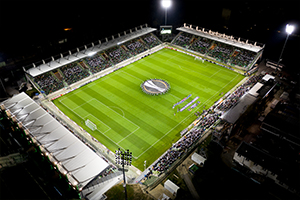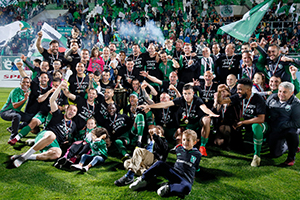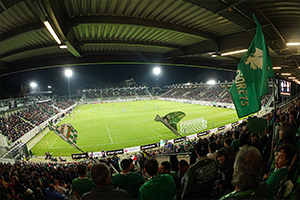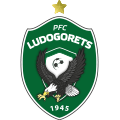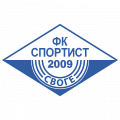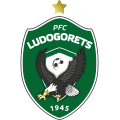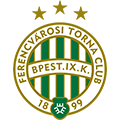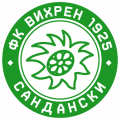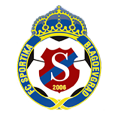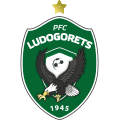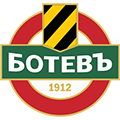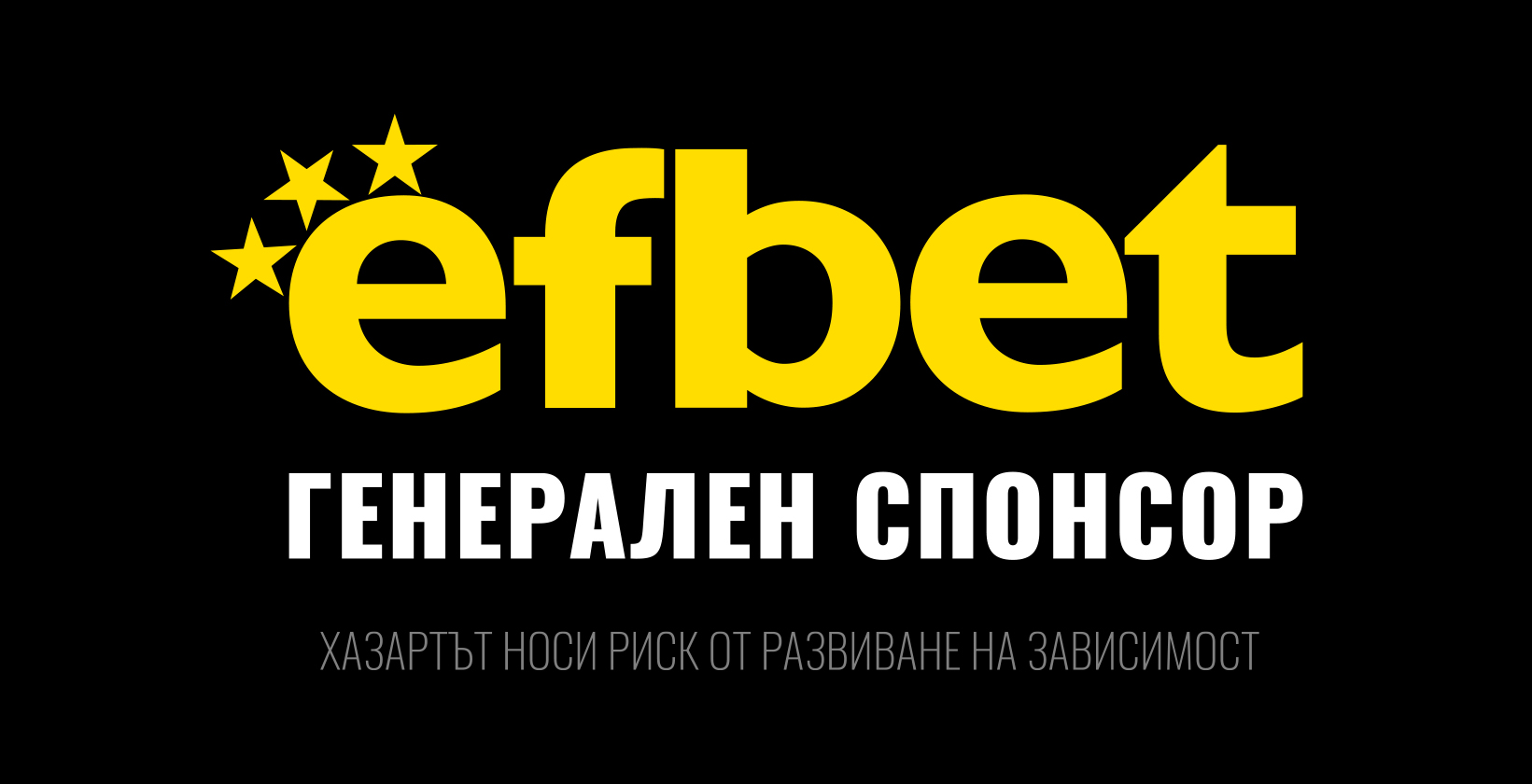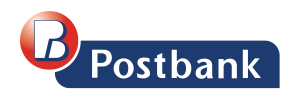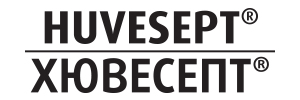Interview 19 September 2024
Ludogorets is the first in Bulgaria to introduce a new methodology for cognitive improvement of football players
Ludogorets is the first team in Bulgaria to start working on a new methodology with the aim of improving the mental abilities of its players. A...
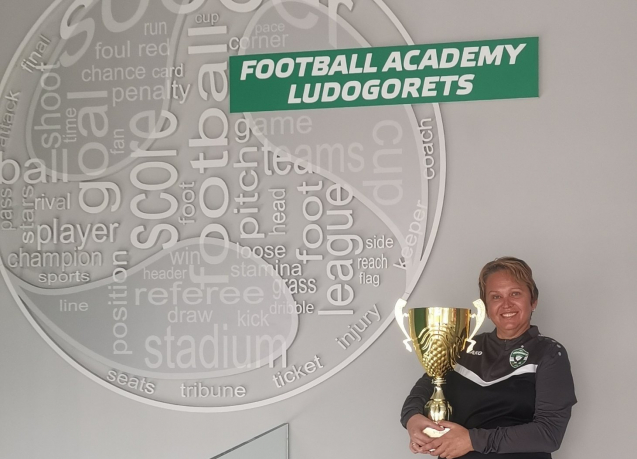
Ludogorets is the first team in Bulgaria to start working on a new methodology with the aim of improving the mental abilities of its players. A similar approach is already applied in the big European clubs, but while in Bulgaria psychologists mainly apply uniform techniques, in Razgrad they have already taken the path of the leading teams abroad. Ludogorets sports psychologist Boryana Razsolkova talks more about what is cognitive improvement of football players and why it is key to their successful performance on the field. She joined the "nest" of the Eagles at the beginning of July 2023, and brought with her a wealth of experience gained in various sports disciplines and after passing specialized courses.
Tell us more about the new focus of your work with Ludogorets football players.
My plan for the 2024/2025 season is quite different from last year's, because I plan to include many different concepts, strategies and practices in the sports and psychological provision of PFC Ludogorets. The emphasis of my work will be in the direction of cognitive construction in the lower groups and refinement in the older ages, their mental endurance and flexibility, as well as the speed of the distribution of attention, which varies in more than three directions.
The direction I'm trying to work in is building a racer at the highest level. All sports psychologists in Bulgaria work with the same methods – visualization, relaxation, while the method I am introducing is something new. The method unfolds the individual mental capacity of each player. This is where his flexibility and footballing stamina develop, meaning he can stay focused beyond the regular 90 minutes. Breakthroughs are usually obtained precisely when the match goes into overtime. What I try to play in the players, as well as playing under pressure, is their endurance as a duration - to keep their concentration, readiness and dynamism even after those 90 minutes.
Currently, the whole world is focusing on the development of mental flexibility in athletes. At this stage, I do not see any other specialist in Bulgaria practicing in this direction. Such methods are used by the big clubs in Europe, as well as world athletes.
My work on building and improving mental flexibility and football endurance is also largely linked to the methodology of conditioning coaches. On the overall training of the players, we are working together with Carlo Reinholz, who joined the club in mid-June. We complement each other, for example, with exercises to develop peripheral vision, coordination, speed of reactions and distribution of attention. This so-called brain training is necessary for every growing and professional soccer player.
How will the new psychological method be applied at different ages in Ludogorets?
The workouts are tailored to the mental age of the boys. First, I will start with the youngest, 12 and 13 years old, who are still going through an adaptive period. They come from different parts of Bulgaria, from different schools, and their training has been done in different ways so far. At the moment, I mainly work with them on the assembly of the team and their unity, since a very large number of them accept the changes in a different way - that they are far from their birthplaces, they go to a different mode of training, of life, of everyday life, even of interaction ...
I will apply the methodology in the team up to the age of 14, as the trainings are different in nature and intensity for each age group.
Also, for the younger ages of our first U13 prep group from last year, I run a kind of parenting school in various forms. In this interaction with parents, I try to present them with information in the most understandable way possible - about how best to approach their children's problems, how to support them in the moments when they need it most, and how to respond most correct to his child, who has a rather different daily life of an active competitor. In many ways, my relationship with my parents is online, as they are from all over Bulgaria and do not always have the opportunity to travel. Sometimes I use the cases when they attend matches in Razgrad to hold individual or group gatherings. Parents' meetings are also convenient, I also send them prepared materials.
Each parent has their own style of behavior with their child, be it authoritarian, authoritative, supportive or understanding. Depending on that, I try to help them do the best for their child. I already know the players well and can judge how the reaction in a given situation could benefit the parents.
How will you approach working with the bigger players?
This year my focus in working with the Elite U15, U16 and U17 groups is on their mental flexibility and football mental toughness. These are very important factors in football, because in the world of this game, decisions can turn the tide of a match in a fraction of a second. Training the brain is just as important as training the body. The result is extremely high and very long-lasting when we add intensive cognitive exercises structured in a certain direction to physical training. This year I will follow this direction of work with the Elite formations and with the men's teams. In the latter, already established and proven personalities play with characteristic play styles, but many of these cognitive factors are also key. Building mental flexibility and mental toughness are key to long-term and stable success. There are many examples, both in Bulgaria and in foreign championships, in which mental endurance is one of the factors with a key role in the game of even great football players. On this basis, a number of victories have been achieved, as well as a number of losses.
Have you already started working on the new cognitive methodology and what are the results so far?
I have already done initial mental agility tests on our Elite players who have shown the highest football qualities. The tests are conducted in English, online, and achievements are automatically reported by the system, not by me. The players achieved excellent results, above the average level, which shows that the direction of our work is correct.
In some ways, building cognitive skills in an athlete is much more than enhanced physical training. In fact, this is the best combination - when working on a physical level and then having an enhanced cognitive training, the most impressive result is obtained!
If a specialist like me knows how to use this methodology, he can predict the development of players. In the beginning, when I was working with her, the coaches couldn't believe what I was telling them, and then they saw it in the games and training. The player becomes braver, more skilled, begins to make the right decisions, becomes more effective, develops his potential at the physical and strategic level, as well as his mental flexibility and endurance. I now model this methodology after our boys. I don't want to be considered the eighth wonder of the world, but in football it really works wonders!
Where do you learn and get ideas for the new sports-psychological approach in Ludogorets?
Why not... I became part of a worldwide research and learning community about mental flexibility in various professional fields. At the moment, in football I structure in the most correct way all the knowledge from the years when I studied mental training, as well as on the basis of all my experience that I have accumulated from all sports. He also collaborates with Yordan Hristov - a great specialist in Bulgaria, former coach of famous teams around the world, and he also works in this direction. Some of the things I borrowed from my experience and what I see working in football. I try to extract the essence from all this, as I also have to consider the free time in the tight championship schedule of the players.
After what period of time can we talk about the results of the new methodology?
At least after two seasons. There is a difference between the summer and winter half seasons, mental flexibility is not something that is acquired. It shows in the different periods of time – now, at the beginning of the season, the players are more rested and recharged. We will see how the cognitive factors will be accounted for in the heat of the championship, at the busiest time when the derbies are played. Atmospheric weather also has an effect.
What do you rely on for your successful work with all eight different age groups of Ludogorets?
A good organization. In addition, with colleagues and conditioning coaches, we have built a great assembly with each other. First, we know extremely well what, when and how we do it and we organize ourselves very quickly. We are also closely connected in the work with the head coach of the first team of Ludogorets Zahari Sirakov, but with these players there is room for corrections, you cannot build from scratch. Therefore, the emphasis is on the children of the Academy, who are still being built, and my attention is mainly directed to them. When building a cube tower for the first time, it works best. After that, no matter how hard you try to build it, you never succeed like the first time.


